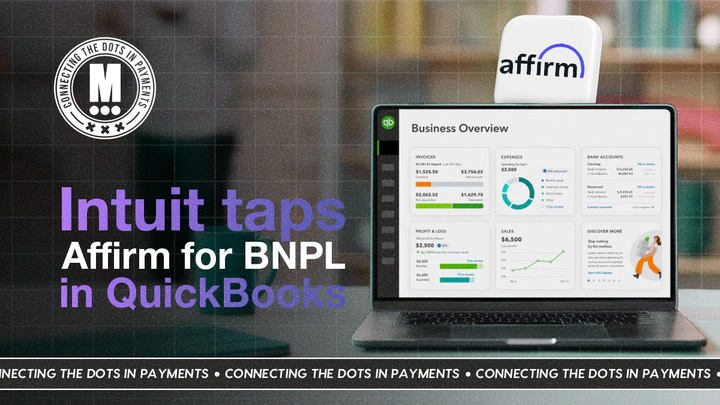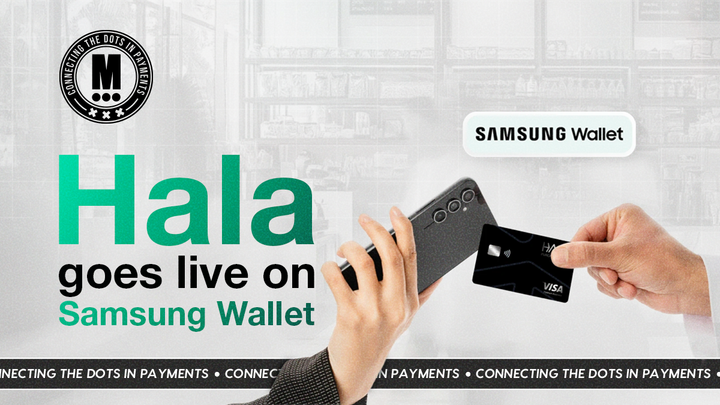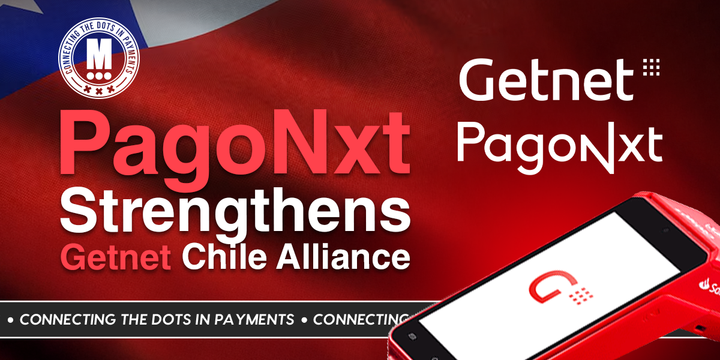CellPoint Digital Launches OSO: Orchestrating the Future of Airline Payments

Hey Payments Fanatic!
Airlines are moving fast into the “Offer-Order-Settle-Deliver” (OOSD) era of retailing. Think personalized bundles, dynamic pricing, and next-gen ancillary sales. But there’s been one giant weak spot: payments.
That’s where CellPoint Digital just stepped in.
They launched One Source Orchestration (OSO), the first payment orchestration platform built exclusively for the airline and travel industry.
The pitch? Turn payments from a cost center into a commercial advantage.
OSO handles the complex stuff — multi-currency settlements, points-plus-cash bookings, multi-party payments — while boosting approval rates by up to 25%.
CellPoint claims it can lift flow-through revenue between 2% and 13%, a big deal in an industry where margins are razor-thin.
With McKinsey forecasting $45B in new airline value by 2030,razor-thin thanks to advanced retailing, CellPoint wants to be the payments engine that makes it real.
Scroll down for more industry news below, and I'll be back in your inbox tomorrow!
Cheers,
Follow me on Threads for daily scoops!

NEWS
🇬🇧 CellPoint Digital launches One Source Orchestration, OSO, the first payment orchestration platform to meet the demand of OOSD retailing models. OSO provides the advanced and configurable payment capabilities travel merchants need to seize the revenue opportunity presented by OOSD models and enter new markets with fewer barriers.
🌎 Hyperpersonalization has reached fraud prevention: AI and open data transform cybercrime. Pomelo highlights the challenges of risk areas as instant payments expand in Latin America and emphasizes the value of having configurable and integrated security tools. “There´s preliminary research that can be done because with the right tools and data processing capabilities, you can have very specific targets,” said Paula Barnes, Risk Leader at Pomelo.
🇸🇦 Remitly and tiqmo sign letter of intent to expand digital financial services in Saudi Arabia. Through this potential partnership, Remitly and tiqmo intend to cooperate by leveraging their respective strengths to provide customers in Saudi Arabia with a seamless and reliable way to send money to loved ones around the world.
🌎 Thredd expands partnership with Reap for stablecoin cards. Under the expanded agreement, Thredd will provide the infrastructure supporting Reap’s physical and virtual card programmes, facilitating the company’s expansion into the US and Latin America.
🇺🇸 Coinbase partner Cardless raises $60 million in growth push. The funds will be used to add features and build programs with name-brand clients, part of its effort to gain a stronger foothold in a business that traditional banks still dominate. The startup aims to reach profitability by the end of next year.
🇺🇸 Stripe Crypto Alumni Raise $19.2M for ATXP Protocol to Power Agentic Payments. Louis Amira emphasized that if ATXP is successful, it would enable the long-awaited promised land of microtransactions. Keep reading
🇳🇬 Flutterwave reshuffles leadership team to strengthen risk, compliance, and oversight. It appoints Prashant Kalia, Mobolaji Bammeke, and Oluwabankole Falade. The company states that the changes are part of a planned succession strategy designed to enhance its governance as regulatory pressure on FinTech entities intensifies in Nigeria and globally.
🇮🇳 PhonePe cuts losses and revenue climbs 40%. PhonePe, which plans to file its Draft Red Herring Prospectus later this year, posted a threefold growth in its adjusted Profit After Tax (PAT) to Rs 630 crore in FY25, from Rs 197 crore in the previous fiscal year.
🇬🇧 Paysafe partners with CMC Markets to expand presence in online trading. CMC customers can use Skrill or Neteller to fund their trading accounts seamlessly and securely. The digital wallets will allow CMC customers to benefit from rapid payment solutions that have been developed with traders in mind.
🇧🇷 Bitget Wallet integrates Brazil’s Pix for stablecoin payments. The move enables users to pay with self-custodied crypto by scanning any Pix QR code. By combining blockchain infrastructure with Pix’s national reach, Bitget Wallet is aiming to reduce the barriers between digital assets and everyday consumer transactions.
🇪🇹 Siinqee Bank partners with Mastercard to launch prepaid cards, expanding digital payments in Ethiopia. By lowering barriers to entry, the partnership is expected to bring more Ethiopians into the financial system, enabling them to participate in global commerce, international travel, and online transactions.
🌍 Mukuru and MoneyGram partner to expand cross-border payments. The collaboration links Mukuru’s technology-driven Southern African infrastructure with MoneyGram’s worldwide payout network, creating a faster, more affordable, and more inclusive remittance experience.
🇺🇸 Walmart Business taps TreviPay for pay-by-invoice. The next phase of its Pay-by-Invoice program enables eligible business customers to access a line of credit with a 30-day term for online and in-store purchases. The new program will be powered by TreviPay’s payments and accounts receivable automation technology.
🇶🇦 QNB enables Unified Payments Interface acceptance in Qatar. QNB has enabled the acceptance of QR code-based Unified Payments Interface (UPI) across Qatar via point-of-sale (POS) terminals for QNB’s merchant clients, powered by NETSTARS’ payment solution.
🇨🇳 First Chinese CNH stablecoin debuts as global race heats up. The stablecoin is meant to facilitate cross-border transactions with countries in the Belt and Road initiative, an infrastructure project building physical roads linking China to the Middle East and Europe, and establishing maritime trade routes with other regions.
🇸🇬 LINE and Kaia to launch stablecoin superapp for cross-border payments. Kaia said the Unify service aims to combine consumer payments, remittances, and on- and off-ramps into a single interface. The company added that users would be able to deposit stablecoins to earn real-time incentives, transfer funds via messages, and make online and in-store payments.
🇵🇰 LemFi secures State Bank of Pakistan approval. The approval enables LemFi to operate in partnership with United Bank Limited, one of Pakistan’s largest and most trusted financial institutions. Continue reading
🌍 Checkout.com powers Rail Europe to 8% uplift in acceptance rates and stronger fraud protection. Rail Europe has achieved an 8% uplift in acceptance rates across its B2C and B2B platforms, while significantly reducing fraud and chargebacks, helping millions of international travellers book European rail with confidence.
🇬🇧 Sientia partners with Tillo to supercharge payment-linked advertising with real rewards. Through Tillo's plug-and-play API, Sientia can now seamlessly embed digital gift cards from over 3,000 global brands into its campaigns, enabling advertisers to drive engagement, reward purchases, and build lasting customer loyalty.
GOLDEN NUGGET
🚨 𝐀𝐠𝐞𝐧𝐭𝐢𝐜 𝐏𝐚𝐲𝐦𝐞𝐧𝐭𝐬 𝐈𝐧𝐭𝐞𝐥𝐥𝐢𝐠𝐞𝐧𝐜𝐞 𝐢𝐧 𝐌𝐨𝐭𝐢𝐨𝐧 — 𝐅𝐫𝐚𝐮𝐝 𝐏𝐫𝐞𝐯𝐞𝐧𝐭𝐢𝐨𝐧 by DEUNA 👇 Created by Arthur Bedel 💳 ♻️
Agentic Payment Intelligence in Motion - Fraud Prevention by Deuna
Traditional, static fraud rules often fall short — tightening controls so much that they block good customers, or leaving gaps that allow fraud to slip through.
Agentic intelligence changes this paradigm. By leveraging historic transaction data and strategic signals (PSPs, payment methods, geographies, behavioral trends), it dynamically recommends risk controls tailored to each scenario.
𝐃𝐞𝐞𝐩 𝐃𝐚𝐭𝐚 𝐂𝐨𝐧𝐭𝐞𝐱𝐭
Historic transaction patterns and behavioral signals are integrated with granular specifics like BIN, card franchise, and geography. This allows the system to distinguish between legitimate customers and potential fraud with precision.
→ The Walt Disney Company leverages historical subscription behavior data to differentiate genuine recurring payments from suspicious account takeovers, reducing false declines.
𝐋𝐨𝐰 𝐑𝐢𝐬𝐤 𝐯𝐬 𝐇𝐢𝐠𝐡 𝐑𝐢𝐬𝐤 𝐓𝐫𝐚𝐧𝐬𝐚𝐜𝐭𝐢𝐨𝐧𝐬
Low-risk transactions flow seamlessly with minimal friction, boosting conversion and improving customer satisfaction.
High-risk transactions are dynamically routed through targeted fraud prevention layers — activating the most relevant PSPs and antifraud providers at the right moment.
→ Uber adapts fraud checks by geography, applying stronger measures in regions with high fraud incidence while keeping repeat riders’ payments frictionless.
𝐏𝐫𝐨𝐯𝐢𝐝𝐞𝐫 𝐎𝐩𝐭𝐢𝐦𝐢𝐳𝐚𝐭𝐢𝐨𝐧 𝐰𝐢𝐭𝐡 𝐅𝐫𝐚𝐮𝐝 𝐂𝐨𝐧𝐭𝐞𝐱𝐭
Risk scoring is factored into provider and PSP selection to balance approval rates, cost efficiency, and security.
→ Airbnb leverages intelligence to dynamically adjust fraud controls by market and traveler profile — applying stronger authentication in high-risk regions or for first-time guests, while allowing frictionless payments for trusted, repeat customers.
𝐈𝐧𝐭𝐞𝐠𝐫𝐚𝐭𝐞𝐝 𝐒𝐞𝐜𝐮𝐫𝐢𝐭𝐲 𝐚𝐭 𝐒𝐜𝐚𝐥𝐞
Fraud tools are embedded directly into the orchestration layer, enabling smarter allocation: fraud detection where it is most impactful, and seamless flows where customers have already proven trustworthy.
→ Worldline merchants leverage adaptive authentication, activating 3DS selectively when intelligence identifies elevated risk — enabling smoother experiences for low-risk customers.
The Result → Intelligent Growth with Protection
✅ Higher approval rates without compromising safety
✅ Smarter allocation of fraud tools where they matter most
✅ Frictionless checkout experiences for trusted customers
This is proactive fraud prevention in motion — moving beyond rigid rules into an era of intelligent orchestration, where every payment decision optimizes both security and customer satisfaction at scale.
Source: DEUNA
Want your message in front of 100.000+ FinTech fanatics, founders, investors, and operators?
Shoot me a message on LinkedIn or send me an e-mail.






Comments ()